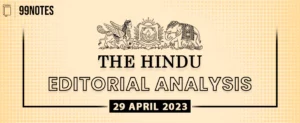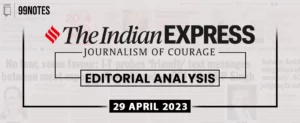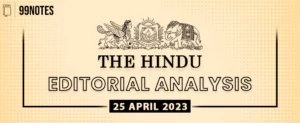- Best IAS Coaching In Delhi | Offers UPSC Classes In Delhi
- UPSC Notes
- Current Affairs UPSC
- Free UPSC Material
- UPSC Exam
- How to Appear for IAS Exam
- Study Material for Free IAS Preparation
- UPSC CSE Exam : Eligibility Criteria
- IFS SALARY – IFS OFFICER SALARY STRUCTURE
- RRB NTPC SALARY- RRB NTPC OFFICER SALARY STRUCTURE
- SSC CGL SALARY – SSC CGL OFFICER SALARY STRUCTURE
- IBPS PO SALARY – IBPS PO OFFICER SALARY STRUCTURE
- KNOW THE UPSC PSIR OPTIONAL SYLLABUS-BEST PSIR OPTIONAL BOOKS AND NOTES BY TOPPERS
- IPS SALARY – IPS OFFICER SALARY STRUCTURE
- IS SELF-PREPARATION ENOUGH TO CLEAR THE IAS EXAM?
- IAS SALARY – IAS OFFICER SALARY STRUCTURE
- 21 TIPS TO OVERCOME DISTRACTIONS WHILE STUDYING
- SOME ANSWER WRITING TIPS FOR THE UPSC MAINS EXAMINATION
- TOP 40 WEIRD QUESTIONS UPSC ASPIRANTS ASK FROM GOOGLE
- LIST OF 10 BEST UPSC COACHING INSTITUTES RECOMMENDED FOR GUARANTEED SUCCESS
- WHAT ARE THE 7 TIPS TO ACE UPSC INTERVIEW
- About 99notes
- Blogs
INDIAN Constitution
Table of Content
PART I – THE UNION AND ITS TERRITORY
PART III – FUNDAMENTAL RIGHTS General
PART IV – DIRECTIVE PRINCIPLES OF STATE POLICY
PART V – THE UNION CHAPTER I. THE EXECUTIVE
PART V – CHAPTER II. PARLIAMENT
PART V – CHAPTER III. LEGISLATIVE POWERS OF THE PRESIDENT
PART V – CHAPTER IV. THE UNION JUDICIARY
PART V – CHAPTER V. COMPTROLLER AND AUDITORGENERAL OF INDIA
PART VI – THE STATES CHAPTER I. GENERAL
PART VI – CHAPTER II. THE EXECUTIVE
PART VI – CHAPTER III. THE STATE LEGISLATURE
PART VI – CHAPTER IV. LEGISLATIVE POWER OF THE GOVERNOR
PART VI – CHAPTER V. THE HIGH COURTS IN THE STATES
PART VI – CHAPTER VI. SUBORDINATE COURTS
PART VII. — Omitted THE STATES IN PART B OF THE FIRST SCHEDULE
PART VIII – THE UNION TERRITORIES
PART IXB – THE CO-OPERATIVE SOCIETIES
PART X – THE SCHEDULED AND TRIBAL AREAS
PART XI – RELATIONS BETWEEN THE UNION AND THE STATES CHAPTER I. LEGISLATIVE RELATIONS
PART XI – CHAPTER II.—ADMINISTRATIVE RELATIONS
PART XIIb – FINANCE, PROPERTY, CONTRACTS AND SUITS CHAPTER I. FINANCE
PART XII – CHAPTER II. BORROWING
PART XII – CHAPTER III. PROPERTY, CONTRACTS, RIGHTS, LIABILITIES, OBLIGATIONS AND SUITS
PART XII – CHAPTER IV. RIGHT TO PROPERTY
PART XIII – TRADE, COMMERCE AND INTERCOURSE WITHIN THE TERRITORY OF INDIA
PART XIV – SERVICES UNDER THE UNION AND THE STATES CHAPTER I. SERVICES
PART XIV – CHAPTER II.— PUBLIC SERVICE COMMISSIONS
PART XVI – SPECIAL PROVISIONS RELATING TO CERTAIN CLASSES
PART XVII – OFFICIAL LANGUAGE CHAPTER I.—LANGUAGE OF THE UNION
PART XVII – CHAPTER II. REGIONAL LANGUAGES
PART XVII – CHAPTER III. LANGUAGE OF THE SUPREME COURT, HIGH COURTS, ETC.
PART XVII – CHAPTER IV. SPECIAL DIRECTIVES
PART XVIII – EMERGENCY PROVISIONS
PART XX – AMENDMENT OF THE CONSTITUTION
PART XXI – TEMPORARY, TRANSITIONAL AND SPECIAL PROVISIONS
PART XXII – SHORT TITLE, COMMENCEMENT, AUTHORITATIVE TEXT IN HINDI AND REPEALS
PART I - THE UNION AND ITS TERRITORY
PART II - CITIZENSHIP
Article 5. Citizenship at the commencement of the Constitution.
Article 6. Rights of citizenship of certain persons who have migrated to India from Pakistan
Article 7. Rights of citizenship of certain migrants to Pakistan.
Article 8. Rights of citizenship of certain persons of Indian origin residing outside India
Article 9. Persons voluntarily acquiring citizenship of a foreign State not to be citizens.
Article 10. Continuance of the rights of citizenship.
Article 11. Parliament to regulate the right of citizenship by law.
PART III FUNDAMENTAL RIGHTS
General
Article 13. Laws inconsistent with or in derogation of the fundamental rights.
Right to Equality
Article 14. Equality before law.
Article 15. Prohibition of discrimination on grounds of religion, race, caste, sex or place of birth
Article 16. Equality of opportunity in matters of public employment.
Article 17. Abolition of Untouchability
Article 18. Abolition of titles
Right to Freedom
Article 19. Protection of certain rights regarding freedom of speech, etc
Article 20. Protection in respect of conviction for offences.
Article 21. Protection of life and personal liberty.
Article 21A. Right to education.
Article 22. Protection against arrest and detention in certain cases.
Right against Exploitation
Article 23. Prohibition of traffic in human beings and forced labour.
Article 24. Prohibition of employment of children in factories, etc.
Right to Freedom of Religion
Article 25. Freedom of conscience and free profession, practice and propagation of religion.
Article 26. Freedom to manage religious affairs
Article 27. Freedom as to payment of taxes for promotion of any particular religion.
Cultural and Educational Rights
Article 29. Protection of interests of minorities
Article 30. Right of minorities to establish and administer educational institutions
Saving of Certain Laws
Article 31 Compulsory acquisition of property – Omitted
Article 31A. Saving of laws providing for acquisition of estates, etc.—
Article 31B. Validation of certain Acts and Regulations.—
Article 31C. Saving of laws giving effect to certain directive principles.—
Right to Constitutional Remedies
Article 32. Remedies for enforcement of rights conferred by this Part
Article 34. Restriction on rights conferred by this Part while martial law is in force in any area.
Article 35. Legislation to give effect to the provisions of this Part.
PART IV DIRECTIVE PRINCIPLES OF STATE POLICY
Article 37. Application of the principles contained in this Part.
Article 38. State to secure a social order for the promotion of welfare of the people.
Article 39. Certain principles of policy to be followed by the State
Article 39A. Equal justice and free legal aid.
Article 40. Organisation of village panchayats
Article 41. Right to work, to education and to public assistance in certain cases
Article 42. Provision for just and humane conditions of work and maternity relief.
Article 43. Living wage, etc., for workers
Article 43A. Participation of workers in management of industries.
Article 43B. Promotion of co-operative societies.
Article 44. Uniform civil code for the citizens
Article 45. Provision for early childhood care and education to children below the age of six years
Article 48. Organisation of agriculture and animal husbandry.
Article 48A. Protection and improvement of environment and safeguarding of forests and wild life.
Article 49. Protection of monuments and places and objects of national importance.
PART IVA FUNDAMENTAL DUTIES
PART V THE UNION
CHAPTER I. THE EXECUTIVE
Article 52. The President of India
Article 53. Executive power of the Union
Article 54. Election of President
Article 55. Manner of election of President
Article 56. Term of office of President
Article 57. Eligibility for re-election.
Article 58. Qualifications for election as President
Article 59. Conditions of President’s office
Article 60. Oath or affirmation by the President.
Article 61. Procedure for impeachment of the President
Article 63. The Vice-President of India
Article 64. The Vice-President to be ex officio Chairman of the Council of States.
Article 66. Election of Vice-President
Article 67. Term of office of Vice-President
Article 69. Oath or affirmation by the Vice-President
Article 70. Discharge of President’s functions in other contingencies.
Article 71. Matters relating to, or connected with, the election of a President or Vice-President.
Article 73. Extent of executive power of the Union
Article 74. Council of Ministers to aid and advise President
Article 75. Other provisions as to Ministers
Article 76. Attorney-General for India.
Article 77. Conduct of business of the Government of India
Article 78. Duties of Prime Minister as respects the furnishing of information to the President, etc
PART V CHAPTER II. PARLIAMENT
Article 79. Constitution of Parliament.
Article 80. Composition of the Council of States
Article 81. Composition of the House of the People
Article 82. Readjustment after each census
Article 83. Duration of Houses of Parliament
Article 84. Qualification for membership of Parliament.
Article 85. Sessions of Parliament, prorogation and dissolution
Article 86. Right of President to address and send messages to Houses
Article 87. Special address by the President.
Article 88. Rights of Ministers and Attorney-General as respects Houses.
Article 89. The Chairman and Deputy Chairman of the Council of States
Article 90. Vacation and resignation of, and removal from, the office of Deputy Chairman.
Article 93. The Speaker and Deputy Speaker of the House of the People.
Article 96. The Speaker or the Deputy Speaker not to preside while a resolution for his removal from office is under consideration
Article 98. Secretariat of Parliament.
Article 99. Oath or affirmation by members
Article 100. Voting in Houses, power of Houses to act notwithstanding vacancies and quorum
Article 101. Vacation of seats
Article 102. Disqualifications for membership
Article 103. Decision on questions as to disqualifications of members.
Article 106. Salaries and allowances of members
Article 107. Provisions as to introduction and passing of Bills.
Article 108. Joint sitting of both Houses in certain cases
Article 109. Special procedure in respect of Money Bills.
Article 110. Definition of “Money Bills”.
Article 112. Annual financial statement
Article 113. Procedure in Parliament with respect to estimates
Article 114. Appropriation Bills
Article 115. Supplementary, additional or excess grants
Article 116. Votes on account, votes of credit and exceptional grants
Article 117. Special provisions as to financial Bills
Article 118. Rules of procedure.
Article 119. Regulation by law of procedure in Parliament in relation to financial business
Article 120. Language to be used in Parliament.
Article 121. Restriction on discussion in Parliament.
Article 122. Courts not to inquire into proceedings of Parliament.
PART V CHAPTER III. LEGISLATIVE POWERS OF THE PRESIDENT
Article 123. Power of President to promulgate Ordinances during recess of Parliament.
PART V CHAPTER IV. THE UNION JUDICIARY
Article 124. Establishment and constitution of Supreme Court
Article 124A. National Judicial Appointments Commission.
Article 125. Salaries, etc., of Judges.
Article 126. Appointment of acting Chief Justice
Article 127. Appointment of ad hoc Judges
Article 128. Attendance of retired Judges at sittings of the Supreme Court.
Article 129. Supreme Court to be a court of record
Article 130. Seat of Supreme Court
Article 131. Original jurisdiction of the Supreme Court.
Article 132. Appellate jurisdiction of Supreme Court in appeals from High Courts in certain cases
Article 134. Appellate jurisdiction of Supreme Court in regard to criminal matters.
Article 134A. Certificate for appeal to the Supreme Court.—
Article 136. Special leave to appeal by the Supreme Court.
Article 137. Review of judgments or orders by the Supreme Court
Article 138. Enlargement of the jurisdiction of the Supreme Court
Article 139. Conferment on the Supreme Court of powers to issue certain writs
Article 139A. Transfer of certain cases
Article 140. Ancillary powers of Supreme Court
Article 141. Law declared by Supreme Court to be binding on all courts
Article 142. Enforcement of decrees and orders of Supreme Court and orders as to discovery, etc.
Article 143. Power of President to consult Supreme Court.
Article 144. Civil and judicial authorities to act in aid of the Supreme Court.
Article 145. Rules of Court, etc.
Article 146. Officers and servants and the expenses of the Supreme Court.
PART V CHAPTER V. COMPTROLLER AND AUDITORGENERAL OF INDIA
Article 148. Comptroller and Auditor-General of India
Article 149. Duties and powers of the Comptroller and Auditor-General
Article 150. Form of accounts of the Union and of the States
PART VI THE STATES
CHAPTER I. GENERAL
Article 153. Governors of States
PART VI CHAPTER II. THE EXECUTIVE
Article 154. Executive power of State
Article 155. Appointment of Governor
Article 156. Term of office of Governor
Article 157. Qualifications for appointment as Governor
Article 158. Conditions of Governor’s office
Article 159. Oath or affirmation by the Governor
Article 160. Discharge of the functions of the Governor in certain contingencies.
Article 162. Extent of executive power of State
Article 163. Council of Ministers to aid and advise Governor
Article 164. Other provisions as to Ministers
Article 165. Advocate-General for the State
Article 166. Conduct of Business of the Government of a State
Article 167. Duties of Chief Minister as respects the furnishing of information to Governor, etc.
PART VI CHAPTER III. THE STATE LEGISLATURE
Article 168. Constitution of Legislatures in States
Article 169. Abolition or creation of Legislative Councils in States.
Article 170. Composition of the Legislative Assemblies
Article 171. Composition of the Legislative Councils
Article 172. Duration of State Legislatures
Article 173. Qualification for membership of the State Legislature
Article 174. Sessions of the State Legislature, prorogation and dissolution.
Article 175. Right of Governor to address and send messages to the House or Houses
Article 176. Special address by the Governor
Article 177. Rights of Ministers and Advocate-General as respects the Houses.
Article 178. The Speaker and Deputy Speaker of the Legislative Assembly.
Article 182. The Chairman and Deputy Chairman of the Legislative Council.
Article 187. Secretariat of State Legislature
Article 188. Oath or affirmation by members
Article 189. Voting in Houses, power of Houses to act notwithstanding vacancies and quorum.
Article 190. Vacation of seats
Article 191. Disqualifications for membership.—
Article 192. Decision on questions as to disqualifications of members.
Article 195. Salaries and allowances of members.
Article 196. Provisions as to introduction and passing of Bills
Article 197. Restriction on powers of Legislative Council as to Bills other than Money Bills
Article 198. Special procedure in respect of Money Bills
Article 199. Definition of “Money Bills”
Article 201. Bills reserved for consideration
Article 202. Annual financial statement
Article 203. Procedure in Legislature with respect to estimates
Article 204. Appropriation Bills
Article 205. Supplementary, additional or excess grants
Article 206. Votes on account, votes of credit and exceptional grants.
Article 207. Special provisions as to financial Bills
Article 208. Rules of procedure
Article 210. Language to be used in the Legislature
Article 211. Restriction on discussion in the Legislature
Article 212. Courts not to inquire into proceedings of the Legislature
PART VI CHAPTER IV. LEGISLATIVE POWER OF THE GOVERNOR
Article 213. Power of Governor to promulgate Ordinances during recess of Legislature
PART VI CHAPTER V. THE HIGH COURTS IN THE STATES
Article 214. High Courts for States
Article 215. High Courts to be courts of record
Article 216. Constitution of High Courts
Article 217. Appointment and conditions of the office of a Judge of a High Court.
Article 218. Application of certain provisions relating to Supreme Court to High Courts
Article 219. Oath or affirmation by Judges of High Courts
Article 220. Restriction on practice after being a permanent Judge
Article 221. Salaries, etc., of Judges
Article 222. Transfer of a Judge from one High Court to another.
Article 223. Appointment of acting Chief Justice.
Article 224. Appointment of additional and acting Judge
Article 224A. Appointment of retired Judges at sittings of High Courts.
Article 225. Jurisdiction of existing High Courts
Article 226. Power of High Courts to issue certain writs
Article 227. Power of superintendence over all courts by the High Court
Article 228. Transfer of certain cases to High Court
Article 229. Officers and servants and the expenses of High Courts.
Article 230. Extension of jurisdiction of High Courts to Union territories
Article 231. Establishment of a common High Court for two or more States.
Article 233. Appointment of district judges
PART VI CHAPTER VI. SUBORDINATE COURTS
Article 234. Recruitment of persons other than district judges to the judicial service
PART VII. —THE STATES IN PART B OF THE FIRST SCHEDULE - Omitted
PART VIII THE UNION TERRITORIES
Article 239. Administration of Union territories
Article 239AA. Special provisions with respect to Delhi
Article 239AB. Provision in case of failure of constitutional machinery
Article 239B. Power of administrator to promulgate Ordinances during recess of Legislature
Article 240. Power of President to make regulations for certain Union territories
PART IX THE PANCHAYATS
Article 243B. Constitution of Panchayats
Article 243C. Composition of Panchayats
Article 243D. Reservation of seats
Article 243E. Duration of Panchayats, etc
Article 243F. Disqualifications for membership
Article 243G. Powers, authority and responsibilities of Panchayats.
Article 243H. Powers to impose taxes by, and Funds of, the Panchayats.
Article 243I. Constitution of Finance Commission to review financial position
Article 243J. Audit of accounts of Panchayats
Article 243K. Elections to the Panchayats
Article 243L. Application to Union territories
Article 243M. Part not to apply to certain areas
Article 243N. Continuance of existing laws and Panchayats.
Article 243O. Bar to interference by courts in electoral matters.
PART IXA THE MUNICIPALITIES
Article 243Q. Constitution of Municipalities
Article 243R. Composition of Municipalities
Article 243S. Constitution and composition of Wards Committees, etc
Article 243T. Reservation of seats
Article 243U. Duration of Municipalities, etc
Article 243V. Disqualifications for membership
Article 243W. Powers, authority and responsibilities of Municipalities, etc.—
Article 243X. Power to impose taxes by, and Funds of, the Municipalities.
Article 243Y. Finance Commission
Article 243Z. Audit of accounts of Municipalities.
Article 243ZA. Elections to the Municipalities.
Article 243ZB. Application to Union territories
Article 243ZC. Part not to apply to certain areas
Article 243ZD. Committee for district planning
Article 243ZE. Committee for Metropolitan planning
Article 243ZF. Continuance of existing laws and Municipalities
Article 243ZG. Bar to interference by courts in electoral matters
PART IXB THE CO-OPERATIVE SOCIETIES
Article 243ZI. Incorporation of co-operative societies
Article 243ZJ. Number and term of members of board and its office bearers
Article 243ZK. Election of members of board
Article 243ZL. Supersession and suspension of board and interim management
Article 243ZM. Audit of accounts of co-operative societies
Article 243ZN. Convening of general body meetings
Article 243ZO. Right of a member to get information
Article 243ZQ. Offences and penalties
Article 243ZR. Application to multi-State co-operative societies
PART X THE SCHEDULED AND TRIBAL AREAS
PART XI RELATIONS BETWEEN THE UNION AND THE STATES
CHAPTER I. LEGISLATIVE RELATIONS
Article 245. Extent of laws made by Parliament and by the Legislatures of States
Article 246. Subject-matter of laws made by Parliament and by the Legislatures of States
Article 246A. Special provision with respect to goods and services tax
Article 247. Power of Parliament to provide for the establishment of certain additional courts
Article 248. Residuary powers of legislation
Article 253. Legislation for giving effect to international agreements.
PART XI CHAPTER II.—ADMINISTRATIVE RELATIONS
Article 256. Obligation of States and the Union
Article 257. Control of the Union over States in certain cases
Article 258. Power of the Union to confer powers, etc., on States in certain cases.
Article 258A. Power of the States to entrust functions to the Union
Article 260. Jurisdiction of the Union in relation to territories outside India
Article 261. Public acts, records and judicial proceedings
Article 262. Adjudication of disputes relating to waters of inter-State rivers or river valleys
Article 263. Provisions with respect to an inter-State Council
PART XII FINANCE, PROPERTY, CONTRACTS AND SUITS
CHAPTER I. FINANCE
Article 265. Taxes not to be imposed save by authority of law
Article 266. Consolidated Funds and public accounts of India and of the States.—
Article 268. Duties levied by the Union but collected and appropriated by the States
Article 269. Taxes levied and collected by the Union but assigned to the States.
Article 270. Taxes levied and distributed between the Union and the States.
Article 271. Surcharge on certain duties and taxes for purposes of the Union.
Article 273. Grants in lieu of export duty on jute and jute products
Article 275. Grants from the Union to certain States
Article 276. Taxes on professions, trades, callings and employments.
Article 279. Calculation of “net proceeds”, etc
Article 279A. Goods and Services Tax Council
Article 280. Finance Commission
Article 281. Recommendations of the Finance Commission.
Article 282. Expenditure defrayable by the Union or a State out of its revenues.
Article 284. Custody of suitors’ deposits and other moneys received by public servants and courts
Article 285. Exemption of property of the Union from State taxation
Article 286. Restrictions as to imposition of tax on the sale or purchase of good
Article 287. Exemption from taxes on electricity
Article 288. Exemption from taxation by States in respect of water or electricity in certain cases
Article 289. Exemption of property and income of a State from Union taxation
Article 290. Adjustment in respect of certain expenses and pensions.
Article 290A. Annual payment to certain Devaswom Funds
PART XII CHAPTER II. BORROWING
Article 292. Borrowing by the Government of India
Article 293. Borrowing by States
Article 294. Succession to property, assets, rights, liabilities and obligations in certain cases
PART XII CHAPTER III. PROPERTY, CONTRACTS, RIGHTS, LIABILITIES, OBLIGATIONS AND SUITS
Article 295. Succession to property, assets, rights, liabilities and obligations in other cases
Article 296. Property accruing by escheat or lapse or as bona vacantia
Article 298. Power to carry on trade, etc
Article 300. Suits and proceedings
PART XII CHAPTER IV. RIGHT TO PROPERTY
Article 300A. Persons not to be deprived of property save by authority of law.—
PART XIII TRADE, COMMERCE AND INTERCOURSE
WITHIN THE TERRITORY OF INDIA
Article 301. Freedom of trade, commerce and intercourse
Article 302. Power of Parliament to impose restrictions on trade, commerce and intercourse
Article 304. Restrictions on trade, commerce and intercourse among States.
Article 305. Saving of existing laws and laws providing for State monopolies
Article 307. Appointment of authority for carrying out the purposes of Article s 301 to 304.
PART XIV SERVICES UNDER THE UNION AND THE STATES
CHAPTER I. SERVICES
Article 309. Recruitment and conditions of service of persons serving the Union or a State
Article 310. Tenure of office of persons serving the Union or a State
Article 312. All-India services
Article 313. Transitional provisions
Article 315. Public Service Commissions for the Union and for the States
PART XIV CHAPTER II.— PUBLIC SERVICE COMMISSIONS
Article 316. Appointment and term of office of members
Article 317. Removal and suspension of a member of a Public Service Commission
Article 320. Functions of Public Service Commissions
Article 321. Power to extend functions of Public Service Commissions
PART XIVA TRIBUNALS
PART XV ELECTIONS
PART XVI SPECIAL PROVISIONS RELATING TO CERTAIN CLASSES
Article 330A. Reservation of seats for women in the House of the People
Article 331. Representation of the Anglo-Indian Community in the House of the People.
Article 332A. Reservation of seats for women in the Legislative Assemblies of the States
Article 334. Reservation of seats and special representation to cease after certain period.
Article 334A. Reservation of seats for women take effect
Article 335. Claims of Scheduled Castes and Scheduled Tribes to services and posts
Article 336. Special provision for Anglo-Indian community in certain services
Article 338. [National Commission for Scheduled Castes].
Article 338A. National Commission for Scheduled Tribes.
Article 338B. National Commission for Backward Classes
Article 340. Appointment of a Commission to investigate the conditions of backward classes.
PART XVII OFFICIAL LANGUAGE
CHAPTER I.—LANGUAGE OF THE UNION
Article 343. Official language of the Union
Article 344. Commission and Committee of Parliament on official language
PART XVII CHAPTER II. REGIONAL LANGUAGES
Article 345. Official language or languages of a State
PART XVII CHAPTER III. LANGUAGE OF THE SUPREME COURT, HIGH COURTS, ETC.
Article 349. Special procedure for enactment of certain laws relating to language
PART XVII CHAPTER IV. SPECIAL DIRECTIVES
Article 350. Language to be used in representations for redress of grievances
Article 350A. Facilities for instruction in mother-tongue at primary stage.
Article 350B. Special Officer for linguistic minorities
Article 351. Directive for development of the Hindi language
PART XVIII EMERGENCY PROVISIONS
Article 352. Proclamation of Emergency
Article 353. Effect of Proclamation of Emergency
Article 356. Provisions in case of failure of constitutional machinery in States.
Article 357. Exercise of legislative powers under Proclamation issued under Article 356.
Article 358. Suspension of provisions of Article 19 during emergencies.
Article 359. Suspension of the enforcement of the rights conferred by Part III during emergencies.
PART XIX MISCELLANEOUS
Article 361. Protection of President and Governors and Rajpramukhs
Article 361A. Protection of publication of proceedings of Parliament and State Legislatures
Article 361B. Disqualification for appointment on remunerative political post.
Article 364. Special provisions as to major ports and aerodromes
Article 365. Effect of failure to comply with, or to give effect to, directions given by the Union.
PART XX AMENDMENT OF THE CONSTITUTION
PART XXI TEMPORARY, TRANSITIONAL AND SPECIAL PROVISIONS
Article 370. Temporary provisions with respect to the State of Jammu and Kashmir.
Article 371. Special provision with respect to the States of 2 Maharashtra and Gujarat.
Article 371A. Special provision with respect to the State of Nagaland
Article 371B. Special provision with respect to the State of Assam.
Article 371C. Special provision with respect to the State of Manipur.
Article 371E. Establishment of Central University in Andhra Pradesh
Article 371F. Special provisions with respect to the State of Sikkim.
Article 371G. Special provision with respect to the State of Mizoram
Article 371H. Special provision with respect to the State of Arunachal Pradesh.
Article 371I. Special provision with respect to the State of Goa.
Article 371J. Special provisions with respect to the State of Karnataka
Article 372. Continuance in force of existing laws and their adaptation
Article 372A. Power of the President to adapt laws
Article 376. Provisions as to Judges of High Courts
Article 377. Provisions as to Comptroller and Auditor-General of India
Article 378. Provisions as to Public Service Commissions.
Article 378A. Special provision as to duration of Andhra Pradesh Legislative Assembly
PART XXII SHORT TITLE, COMMENCEMENT, AUTHORITATIVE TEXT IN HINDI AND REPEALS
SCHEDULES
FIRST SCHEDULE
- —The States.
- —The Union territories.
SECOND SCHEDULE
PART A—Provisions as to the President and the Governors of States.
PART B— [Omitted.]
PART C—Provisions as to the Speaker and the Deputy Speaker of the House of the People and the Chairman and the Deputy Chairman of the Council of States and the Speaker and the Deputy Speaker of the Legislative Assembly and the Chairman and the Deputy Chairman of the Legislative Council of a State.
PART D— Provisions as to the Judges of the Supreme Court and of the High Courts.
PART E— Provisions as to the Comptroller and Auditor-General of India.
THIRD SCHEDULE— Forms of Oaths or Affirmations.
FOURTH SCHEDULE—Allocation of seats in the Council of States.
FIFTH SCHEDULE—Provisions as to the Administration and Control of Scheduled Areas and Scheduled Tribes
PART A—General.
PART B—Administration and Control of Scheduled Areas and Scheduled Tribes.
PART C— Scheduled Areas.
PART D—Amendment of the Schedule.
SIXTH SCHEDULE— Provisions as to the Administration of Tribal Areas in the States of Assam, Meghalaya, Tripura and Mizoram.
SEVENTH SCHEDULE—
List I — Union List.
List II— State List.
List III— Concurrent List.
EIGHTH SCHEDULE— Languages.
NINTH SCHEDULE—Validation of certain Acts and Regulations.
TENTH SCHEDULE— Provisions as to disqualification on ground of defection.
ELEVENTH SCHEDULE— Powers, authority and responsibilities of Panchayats.
TWELFTH SCHEDULE— Powers, authority and responsibilities of Municipalities, etc.
APPENDICES
APPENDIX I.—The Constitution (One Hundredth Amendment) Act, 2015.
APPENDIX II.—The Constitution (Application to Jammu and Kashmir) Order, 2019.
APPENDIX III.— Declaration under article 370(3) of the Constitution.
- Ethics And Human Interface
- Attitude Notes
- Aptitude For Civil Services Notes
- Emotional Intelligence Notes
- Moral Thinkers And Philosophers
- Civil Service Values Notes
- Ethical Issues In International Relations Notes
- Corporate Governance Notes
- Probity In Governance Notes
- Case Study On Above Issues Notes
Contact Us
Address
Head Office :- Office No-2 & 3 ,LGF,Apsara Arcade,Adjacent Karol bagh Metro,Old Rajinder Nagar ,New Delhi-110060
2nd Office:- Metro station, 2nd floor, 5B, Pusa Rd, opp. to Metro Pillar no. 110, near Karol Bagh, Block B, Karol Bagh, New Delhi, Delhi 110005









